News Backgrounder
IATA leader rose to every challenge in aviation's most tumultuous era
Alexandre de Juniac took charge of the International Air Transport Association (IATA) in late 2016 at a time when the industry was experiencing significant growth. He stepped down in late March as the airline lobby’s members were fighting their way through the worst crisis in aviation history. But he has never lost confidence in the industry’s recovery, reports associate editor and chief correspondent, Tom Ballantyne.
April 1st 2021
When the severity of the coronavirus pandemic was revealed early in 2020, International Air Transport Association director general and chief executive, Alexander de Juniac, did not hesitate to act. Read More » As his members grounded a huge percentage of their fleets, stood down thousands of staff and watched financial losses widen, he knew IATA also had to change.
“Very early, in late February and early March, we shifted to crisis mode. We had a daily meeting of the executive committee at 7.30am. Everybody was mobilized 24/7 to save the industry. It was the survival plan plus the restart plan plus. It was everything aimed first of all at saving the industry, then preparing for the restart, pushing governments to take the best decisions to help us,” he explained to Orient Aviation.
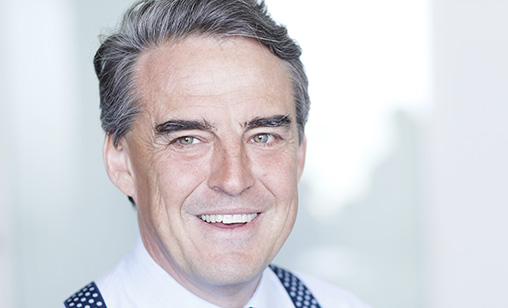 |
“Everybody in the organization had their objectives and targets changed,” he said. “Secondly, we instituted a cost-reduction plan almost immediately. By July we decided the cost reduction plan had to include a restructuring plan for the whole organization. So, 24% of positions were abolished. “We reduced the staff of 1800 at the end of February 2020 to something like 1400 by December.
“We had to be very tough. Everybody understood. We have tried to respect our values and our employees. It was very painful but necessary.”
It was certainly exhausting, de Juniac said. With fewer people, the pressure was even more intense for remaining staff. “I have to say the team has demonstrated a level of resilience and creativity of engagement that is exceptional. I am very, very proud of IATA. The industry can be proud. Compared with other industries I am confident aviation and airlines have been particularly well supported, defended and helped by the actions of IATA,” he said.
The French-born airline veteran was well suited to dealing with the crisis. With more than three decades of experience in both the private and public sectors, including senior positions in the airline and aerospace industries and the French government, he has seen several crises in the industry. He was chairman and CEO of Air France-KLM from 2013 to 2016 after serving as chairman and CEO of Air France from 2011 to 2013, positions that spanned heated and on one occasion violent reactions from union members to the group’s restructuring.
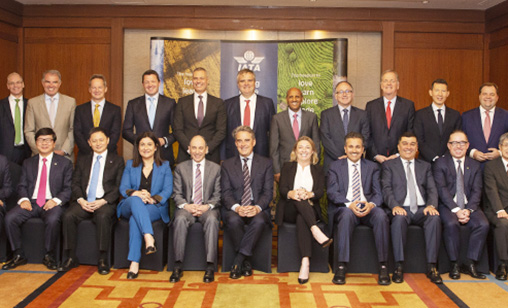 |
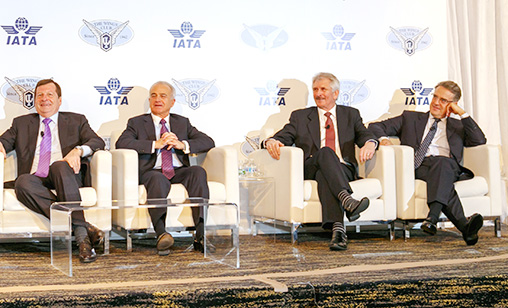 |
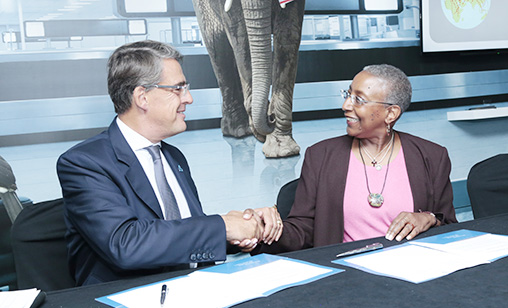 |
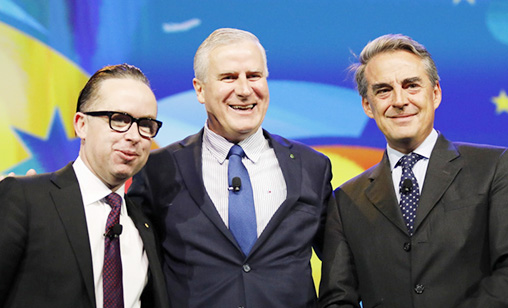 |
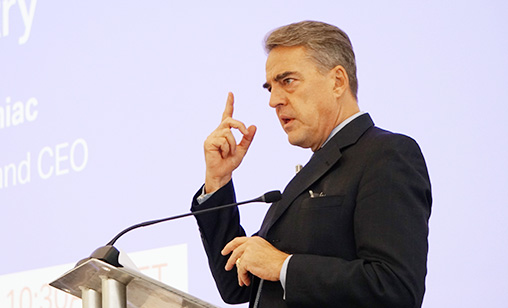 |
One important lesson from the crisis, de Juniac believed, is the need for the industry to strengthen its financial management. “It showed, probably, that the financial structure of our industry is too weak, with too low profitability, too weak balance sheets and too high debt. We should work on being more financially sound in operating,” he said.
With airlines having survived health crises such as SARS in 2003-2004 and later in the decade the Ebola breakout, they have been better prepared for the COVID-19 pandemic, de Juniac said. “We had tools. But the unprecedented global spread of the crisis showed we were not prepared enough. We need more cooperation and collaboration amongst various partners, including governments and regulators,” he said.
IATA has worked tirelessly with partner organizations such as Airports Council International (ACI) and the International Civil Aviation Organization (ICAO) to establish globally standardized COVID-19 testing and vaccine rules. A result is the Travel Pass, a mobile health verification app that electronically captures a traveller’s vaccination history and COVID-19 test results to facilitate safe cross-border travel. Several airlines, including Singapore Airlines and Korean Air, are trialling the app.
The Travel Pass is one of the major keys to recovery, IATA believes. “It will complement vaccination and testing to convince governments to reopen their borders. Very early on we thought we had to provide them with a certification tool that would give them the comfort to reopen their borders without reimporting the virus and re-infecting their populations,” he said.
There have been casualties from COVID-19. Forty to fifty airlines, many of them small and mid-sized, have entered bankruptcy and there are more in the middle of Chapter 11 or under administration, bringing the total to 60 or 70, de Juniac said. That there have not been more of the group’s more than 290 members – they represent 82% of global air traffic - going under is explained by at least two reasons.
“The airlines have taken appropriate measures to restructure and adapt their activities. Secondly, there has been very strong support from governments that has helped airlines bridge the gap. There is no miracle about that,” he said.
As for the future, he does not believe the industry will change significantly “because this crisis is not a crisis of the business model of the airlines or aviation, it is a complete external shock”, he said. “The industry will continue to be characterized by the co-existence of two types of airlines, the low-cost and full service. These airlines will probably be smaller, at least in the short and medium term, but not in the long run. They will be able to return to growth,” he said.
“In the short term, there will be smaller airlines with smaller networks and with fewer aircraft. We will have, possibly, pretty competitive airlines because they will have adapted to the economic picture. The point is, as airlines, we should be stronger financially to cope with or absorb shocks, financial shocks.”
De Juniac is succeeded by Willie Walsh, until recently CEO of IAG (International Airline Group), the parent company of British Airways and Iberia. For Walsh, the departing IATA boss has no advice. “He is a highly skilled, highly regarded professional and very experienced. I have nothing to advise him except to say IATA is a nice organization with very good people. It has demonstrated its ability to adapt and have a leading role in the industry. I hope that will continue. I am sure that is at the heart of Willie’s vision for this organization,” de Juniac.
In an interview leading up to his voluntary decision to step down as the International Air Transport Association’s boss, Alexandre de Juniac told the Financial Times the association’s members were discussing tougher climate change targets. Being debated is a shift to net carbon emissions by 2050 compared with current industry goals, based on 2005 levels, of carbon neutrality at 2020 and a 50% reduction in emissions from flying by 2050. “The crisis has not diverted us from sticking to these commitments. We have not changed anything, but we think we should probably go further so we are working on that,” he told the newspaper in mid-March. There was no guarantee carriers would agree on net zero carbon emissions, but the need for action had grown, he said. “That is a point on which everyone is working. But we still have to do work on that,” he said. Strategies for establishing more ambitious emissions reduction levels will be part of airline member discussions at the association’s annual general meeting to be held this year in Boston from October 3-5. |
Gena McKnight says:
June 20th 2021 11:06pm